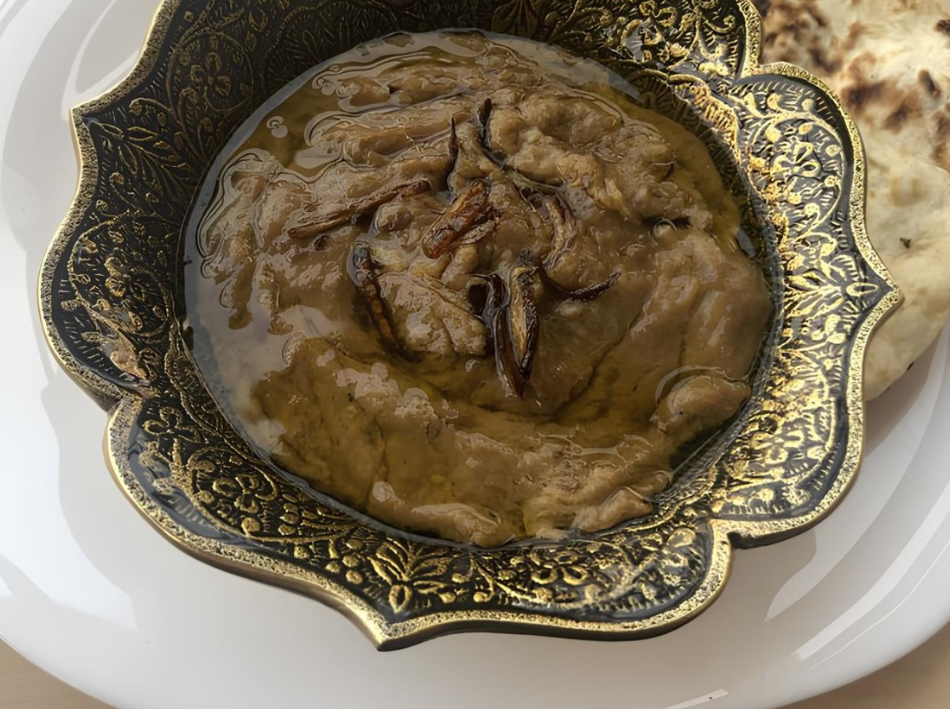Harissa: Centuries-old winter tradition of Kashmir continues to thrive
In the chilling winter of Kashmir, when temperatures plunge below zero, the Kashmiri people have a time-honoured secret to combat the cold with a centuries-old delicacy known as Harissa, which is a must-have breakfast during the winter months.
Crafted with care and slow-cooked. Harissa captures the essence of winter dining in the region. Made with mutton each bite is filled with a symphony of aromatic spices, offering a rich and satisfying experience with its main ingredients of minced lamb, rice and a blend of mild spices.
The preparation of Harissa is not just a culinary art, it is a living tradition passed down through generations. Cooked overnight in clay pots over ancient wooden fire ovens, the slow-cooking method not only enhances the taste but also reflects the resilience of the Kashmiris in navigating the harsh winter months. During the early morning hours, a heavy rush of customers is witnessed at the shops selling the delicacy.
Locals brave the freezing cold, forming early morning lines to taste this dish, showcasing the enduring popularity of Harissa in the hearts of Kashmiris.
“Harrisa, known as the winter wonder dish of Kashmir, is best savored early in the morning. To experience this delicacy at its finest, one must wake up early and head to the Harrisa shop,’’ Basid, a local who was also waiting in the queue tells Media India Group.
‘‘For the past 100 years, our family has been dedicated to the art of making Harissa, a cherished tradition that brings warmth and comfort to the people of Kashmir, especially during the chilling winters. Each day, we tirelessly prepare drums of Harissa, ensuring that our customers experience the authentic flavors of this centuries-old mutton delicacy. Harissa, believed to have originated in Iran, has become the go-to dish for Kashmiris when winter arrives, The preparation of Harissa demands an overnight cooking process that involves warming up the clay pot with coals. Adding rice, meat, and spices, allowing it to steam until the bones separate. The particular process continues as we remove the bones and thoroughly mix the dish until it changes into a rich and thick paste, Mohammed Aamir, a seasoned Harissa seller from Baramulla tells Media India Group.
But it is not cheap as about 500 grams of Harissa is sold for about INR 600, a fair price for the skill. “The unique presentation of our Harissa includes garnishing with kabab and Methi Maaz. It is not just a meal, it is a cultural experience that encapsulates the essence of Kashmiri culinary heritage,’’ adds Aamir.
Tradition & culture
Harissa is more than just a dish; it has also become a kind of gift that families exchange with each other and holds a special place in Kashmiri traditions. Fathers often send Harissa to the newlywed daughters’ families, creating a bond that transcends generations.
“In the 14th century, the cultural corridors between Central Asia and Kashmir bore witness to a transformative exchange, as traders from distant lands crossed the famed Silk route. Among the treasures they brought were not just handicrafts and various commodities, but also the culinary delight of Harissa, a dish that left an indelible mark on Kashmir’s gastronomic landscape,’’ Zareef Ahmad Zareef, a Kashmiri poet tells Media India Group.
He also sheds light on the initial days of Harissa’s introduction to the valley. “Foreign traders, particularly hailing from Central Asia, were the first to relish this creation. Accompanied by skilled Persian cooks known as Ashpaz, these traders would make Harissa. However, as the winds of cultural change swept through the valley, the art of making Harissa slowly found its way into the kitchens of the local Kashmiris. Over the periods, it evolved, becoming an integral part of Kashmir’s cooking heritage, Initially, it was confined to the tables of the Royalty in Kashmiri society, the meticulous preparation and exotic ingredients made it a dish of prestige, accessible only to those who could afford it. As the recipe assimilated into local traditions, Harissa transformed from a foreign indulgence to a cherished local delicacy,’’ Zareef adds.












